Introduction to Topic Modeling in Python
PyGotham 2015
by Christine Doig
Introduction
About me
About Continuum Analytics
Free Python distribution: Anaconda
Open source: conda, blaze, dask, bokeh, numba...
Proud sponsor of PyGotham, PyData, SciPy, PyCon, Europython...
We are hiring!
About this talk
Topic Modeling
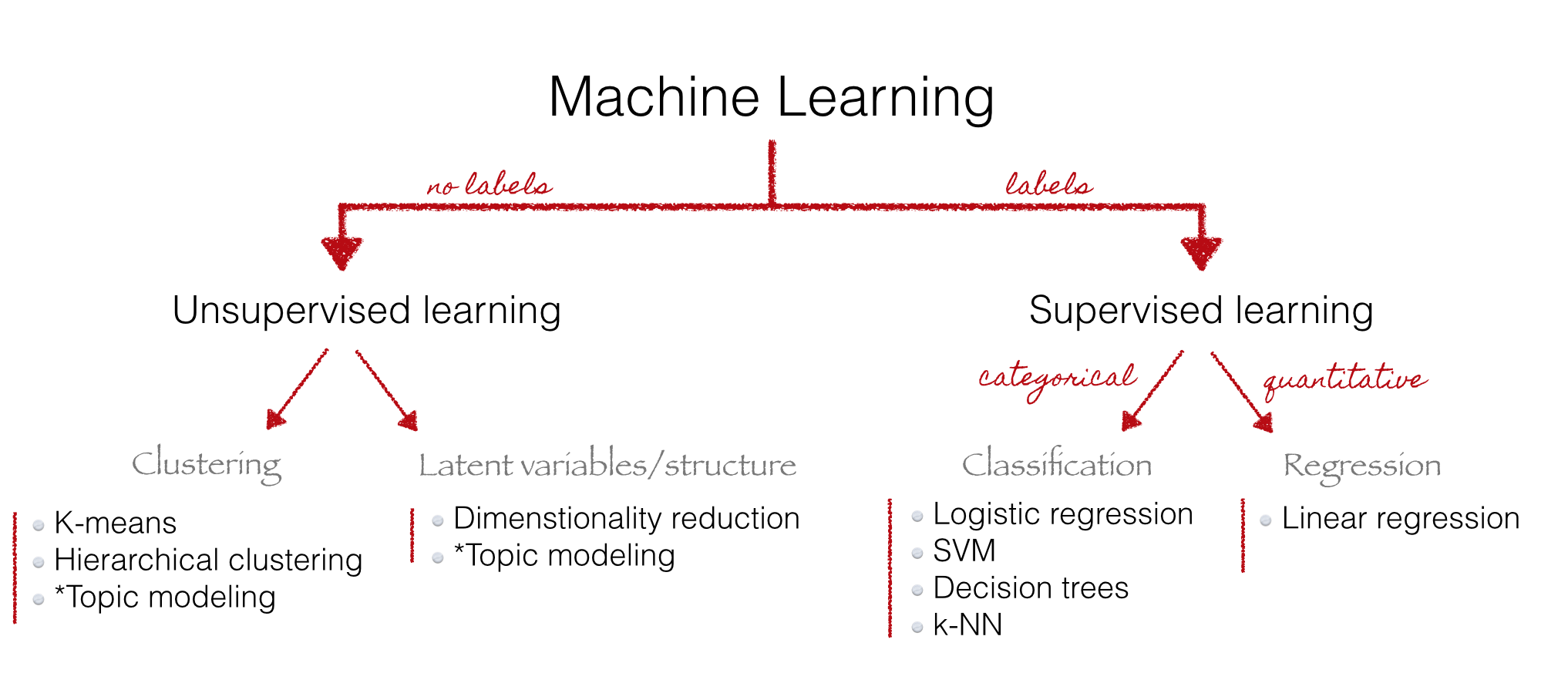
Topic Modeling Applications
Building the NYT Recommendation Engine: From keywords over collaborative filtering to Collaborative Topic Modeling

Definitions
Characteristics
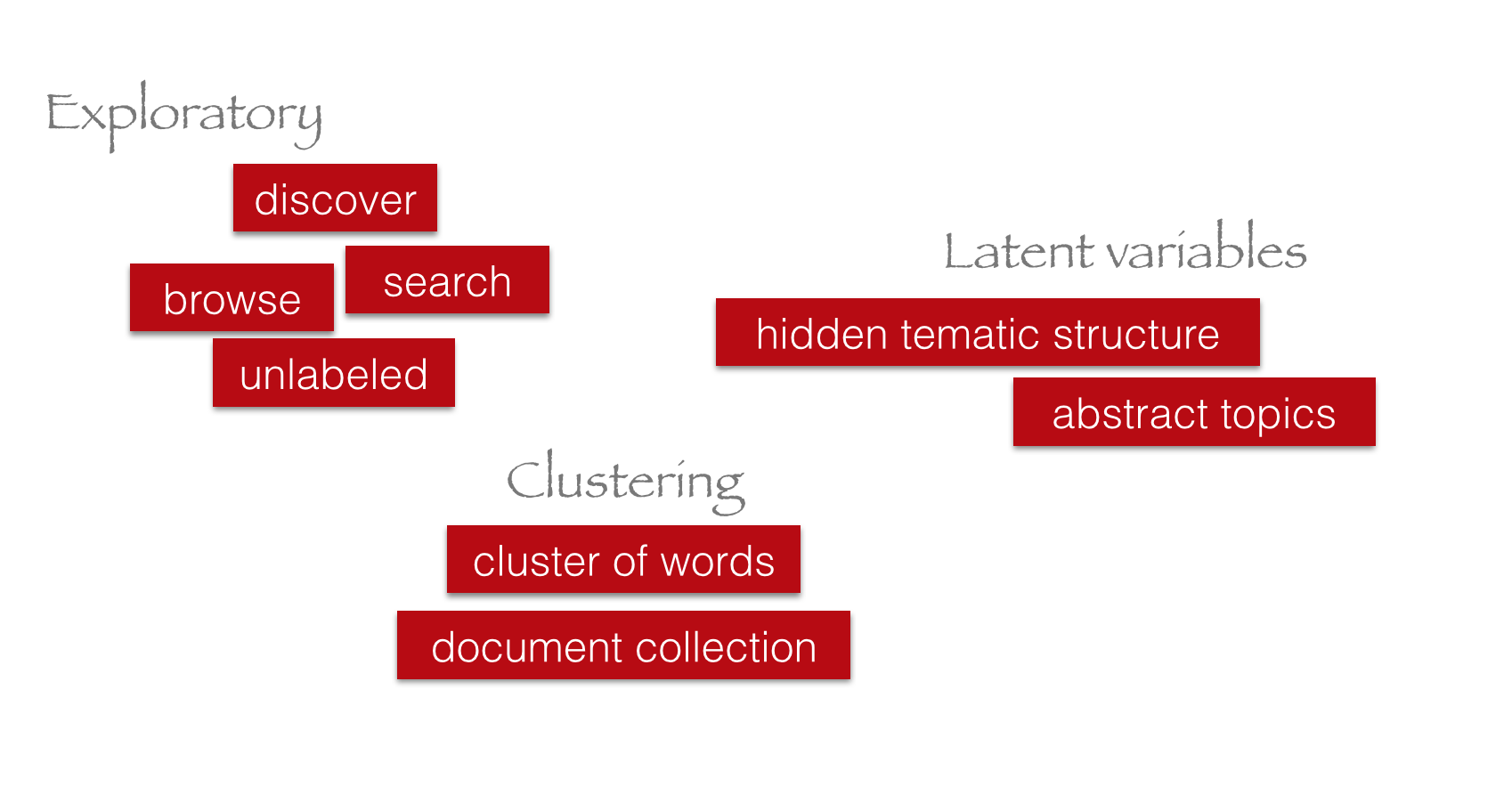
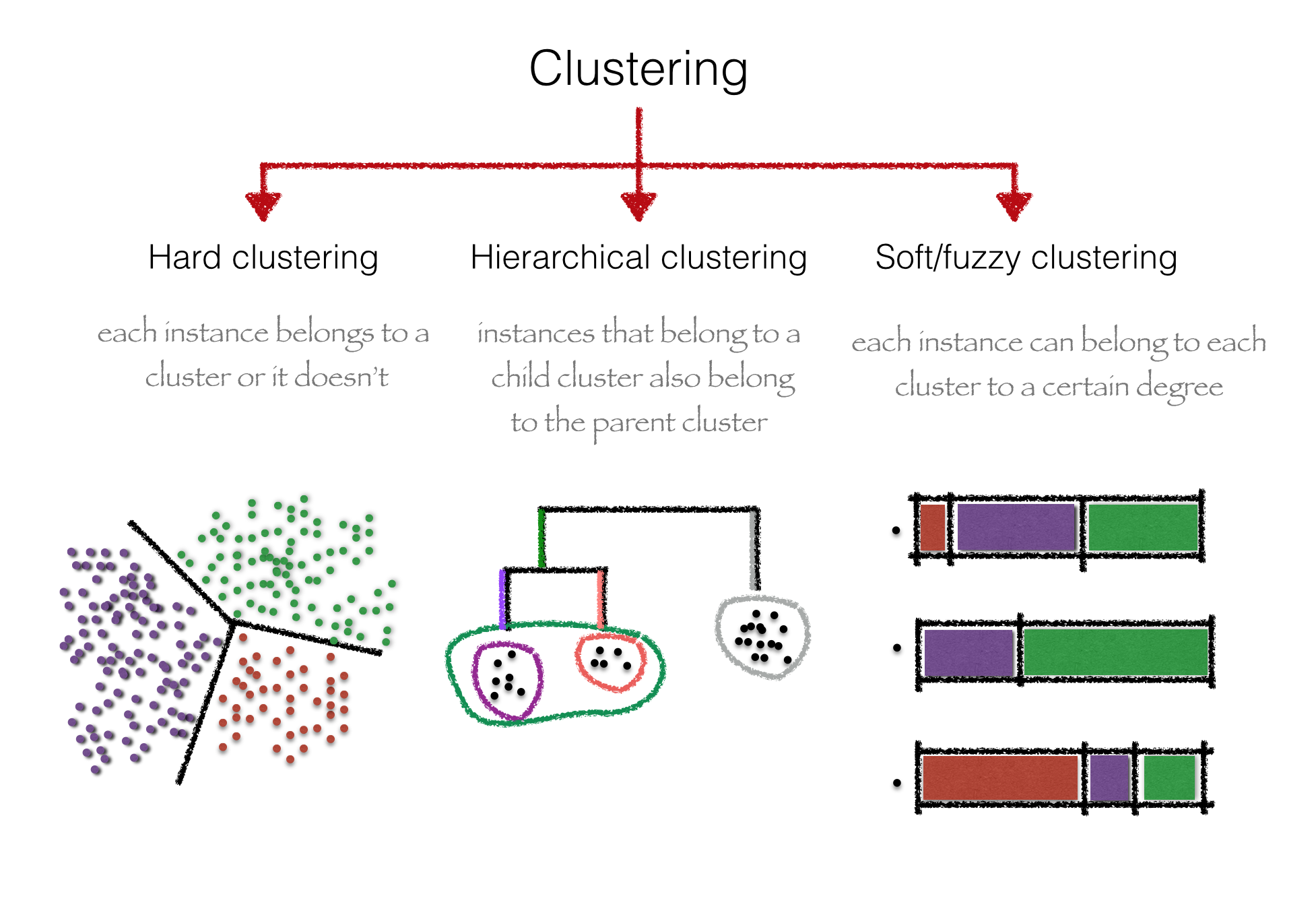
Diagram
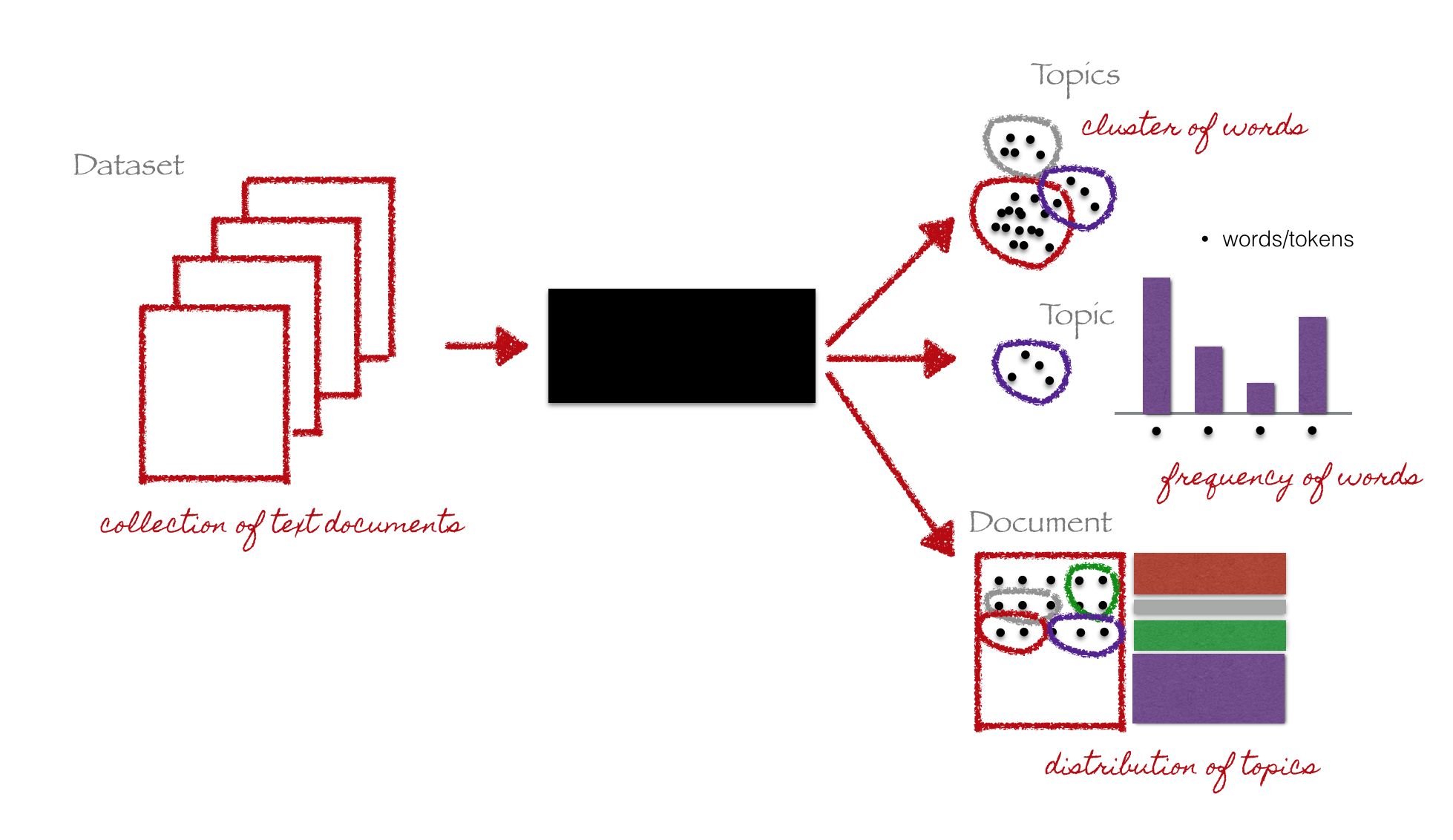
LDA
LDA vs LDA
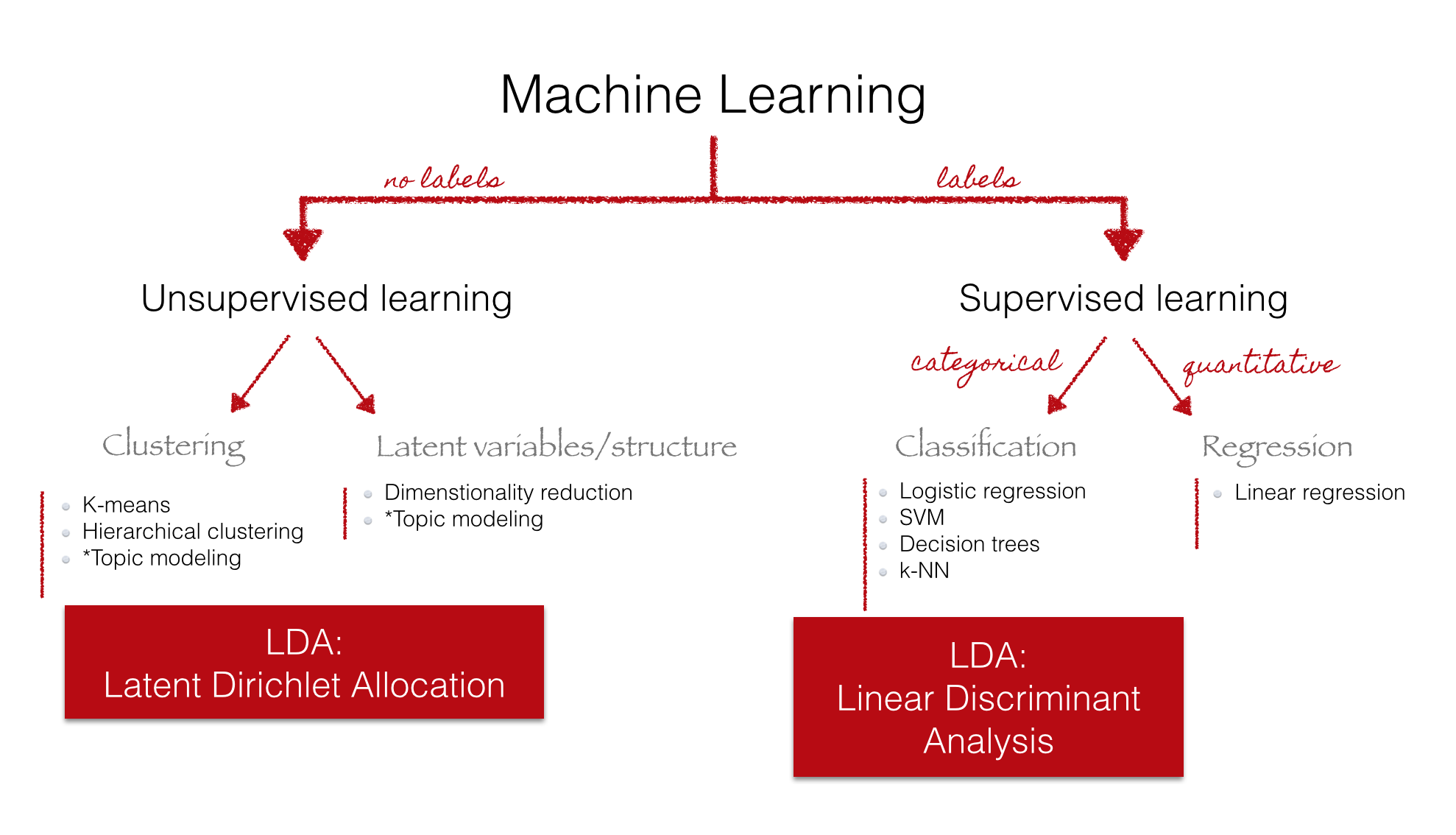
LDA Plate notation
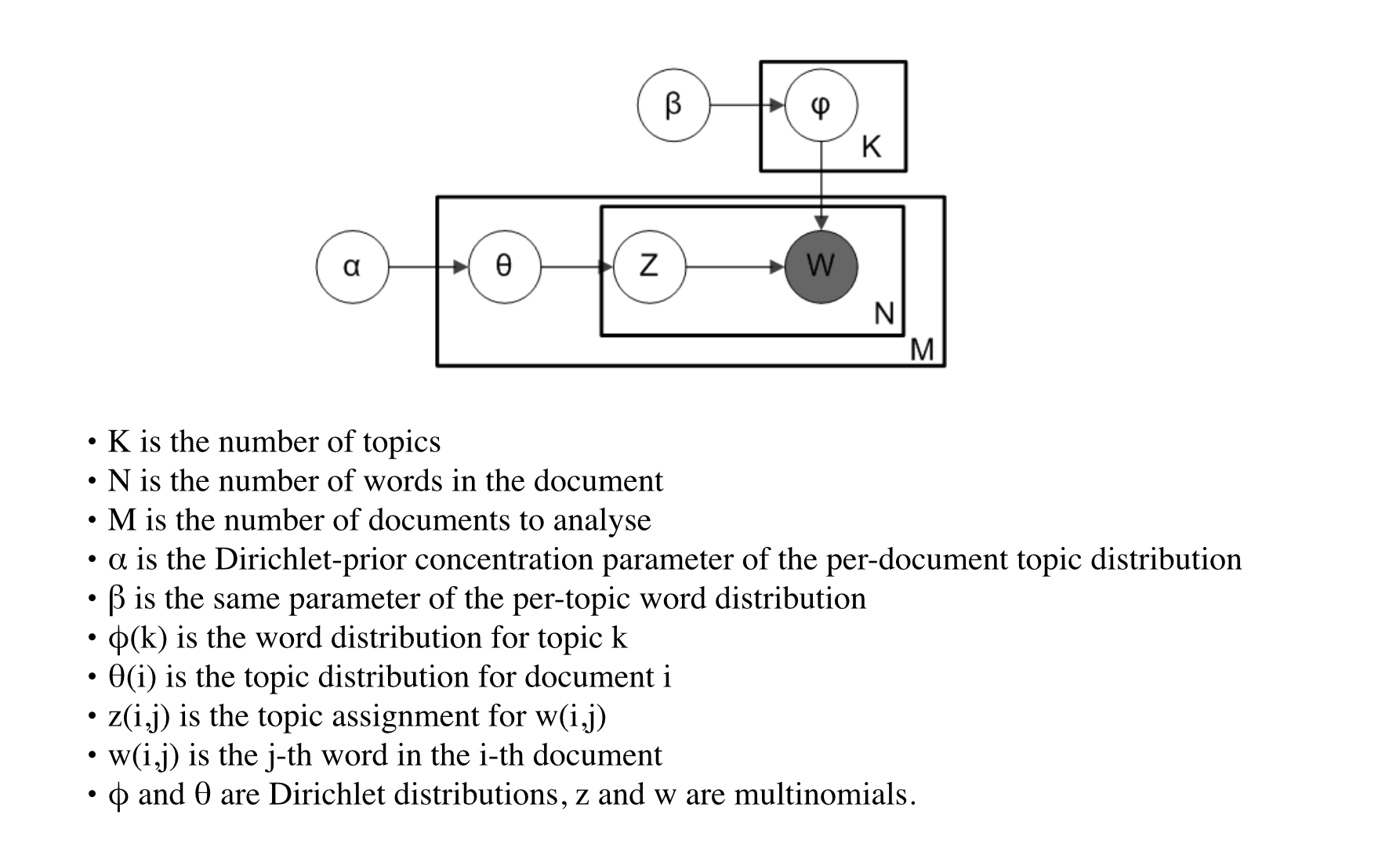
Parameters and variables
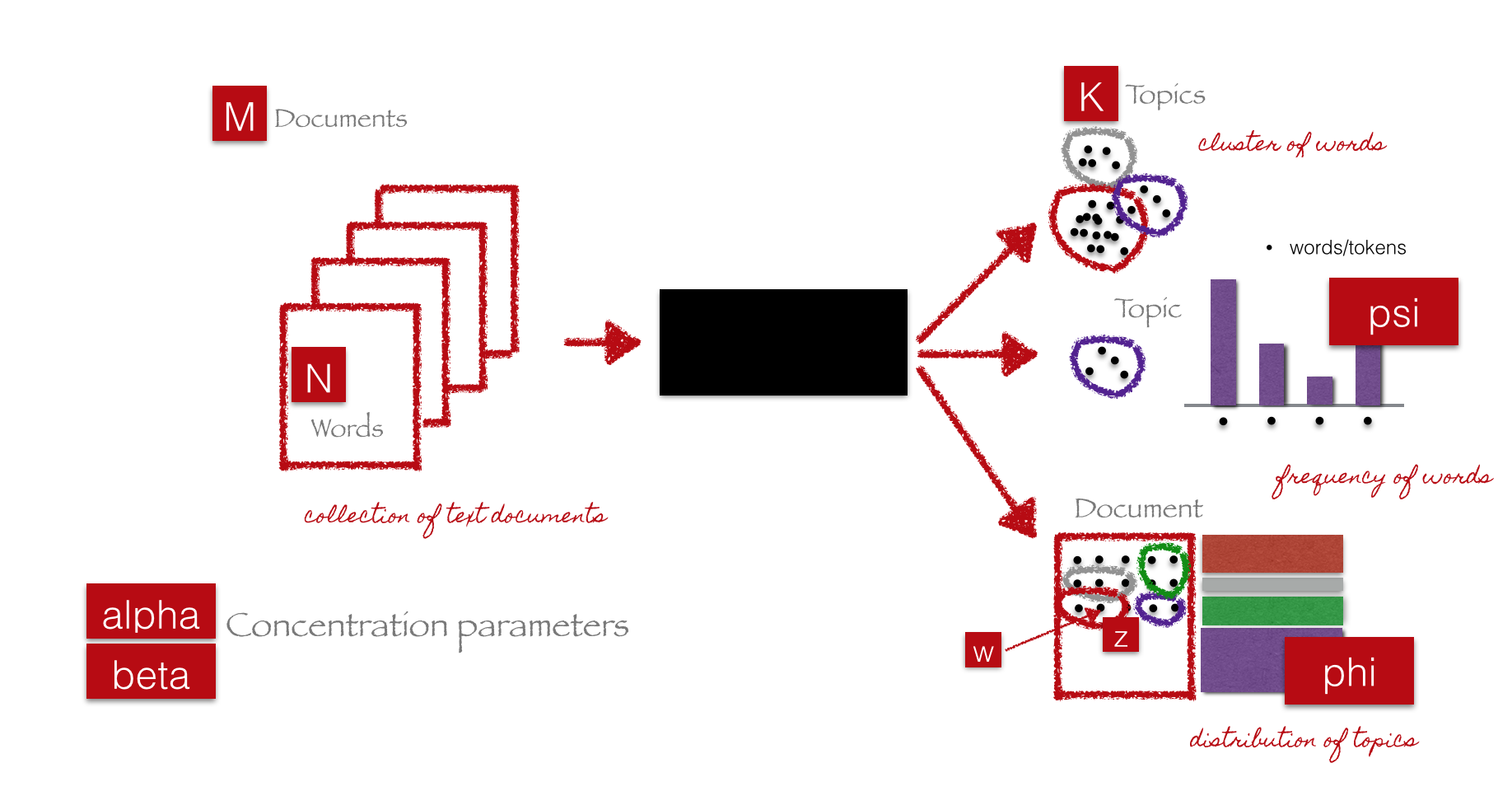
Understanding LDA
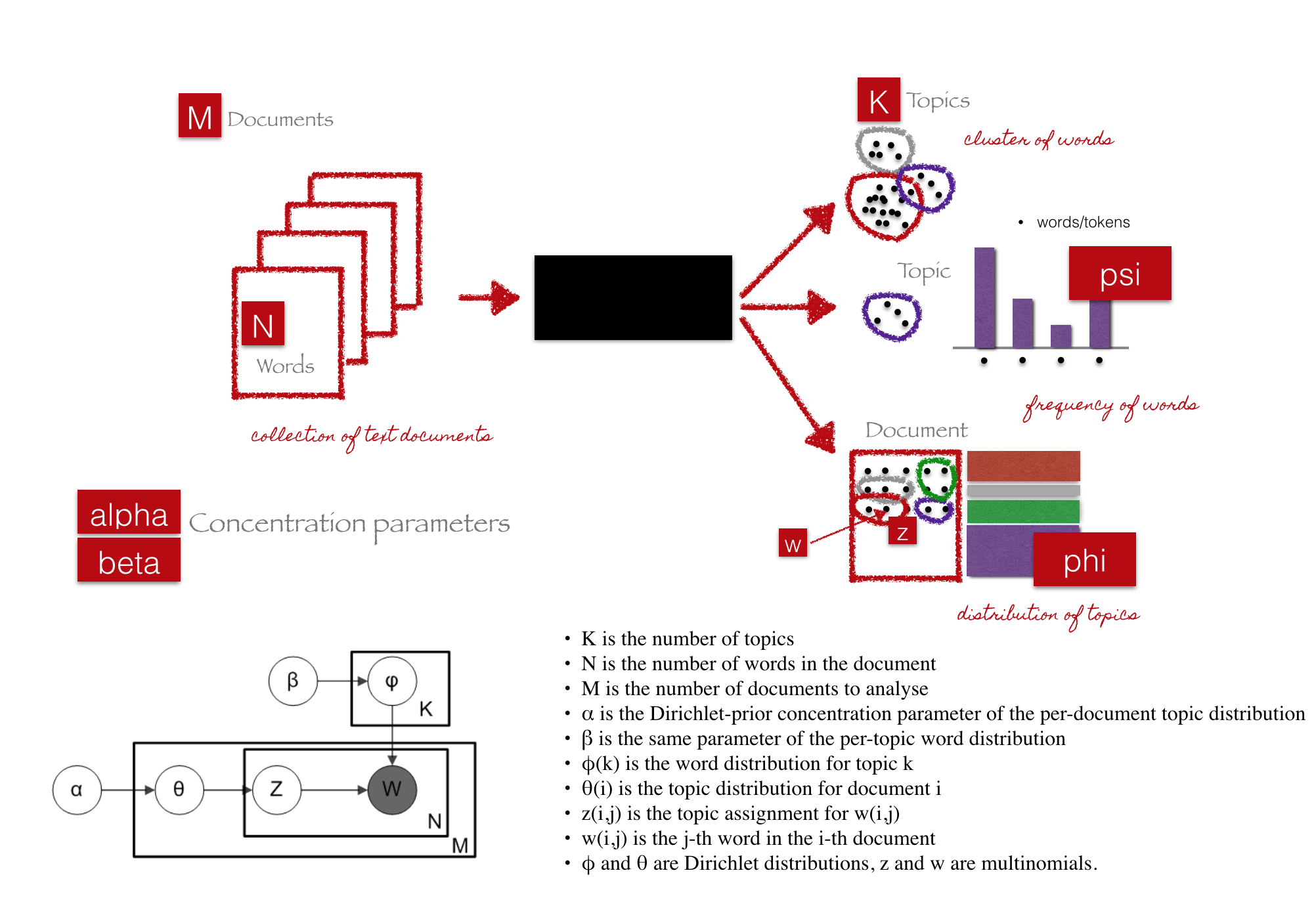
LDA algorithm
Iterative algorithm
- Initialize parameters
- Initialize topic assignments randomly
- Iterate
- Resample topic for word, given all other words and their current topic assignments
- Get results
- Evaluate model
- For each word in each document:
Initialize parameters
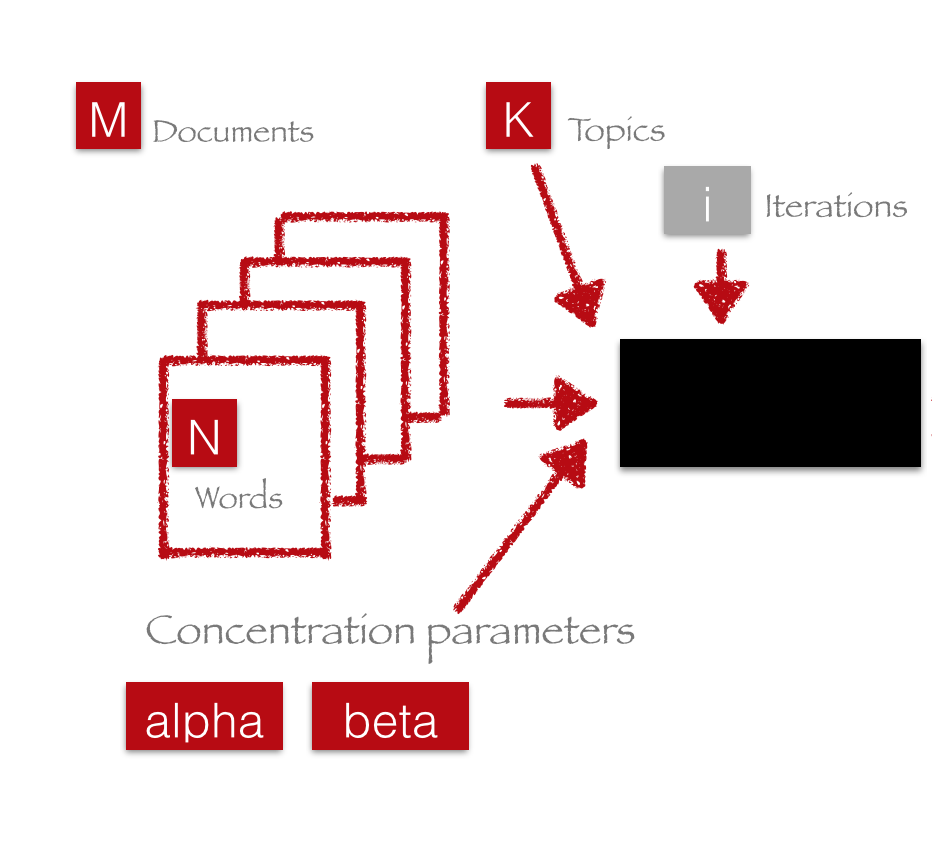
Initialize topic assignments randomly
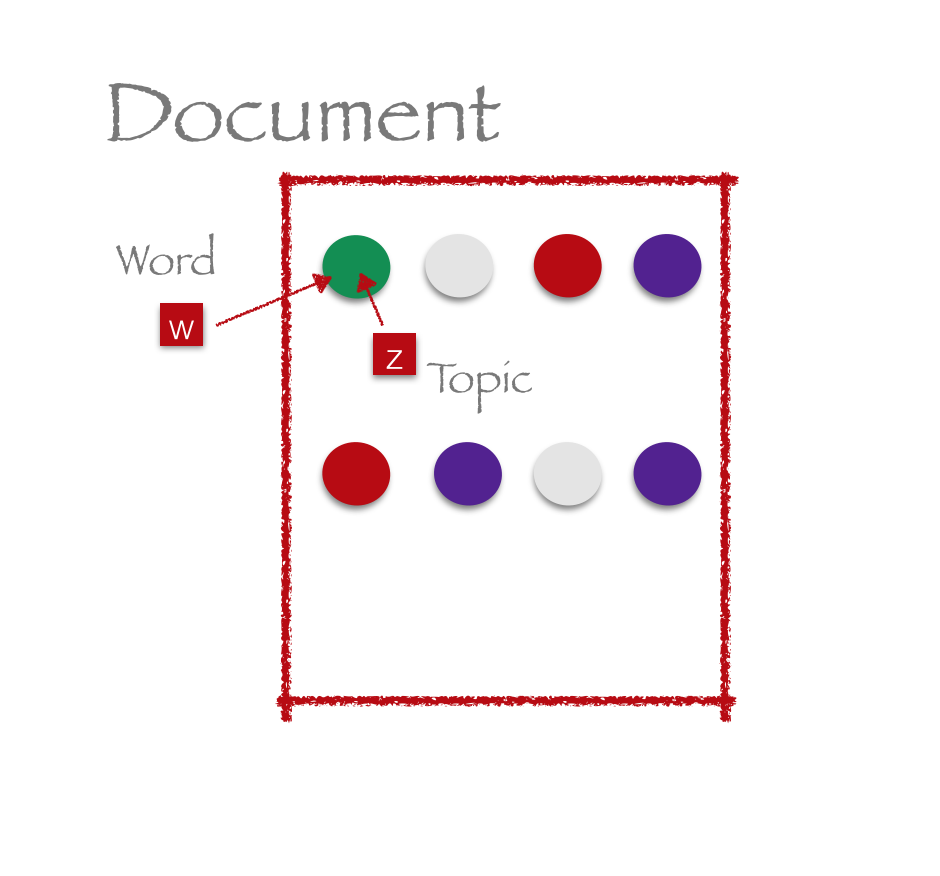
Iterate
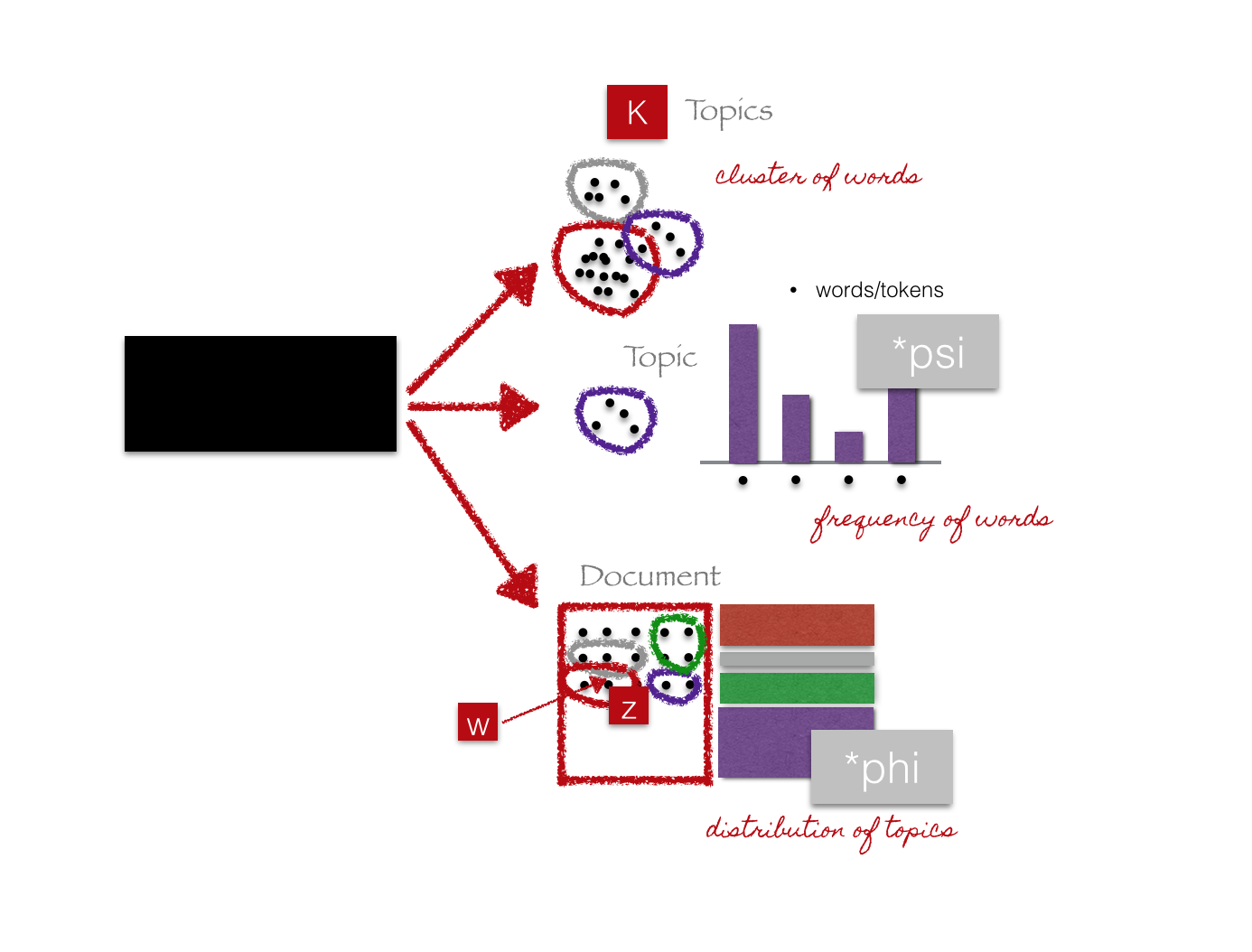
Resample topic for word, given all other words and their current topic assignments
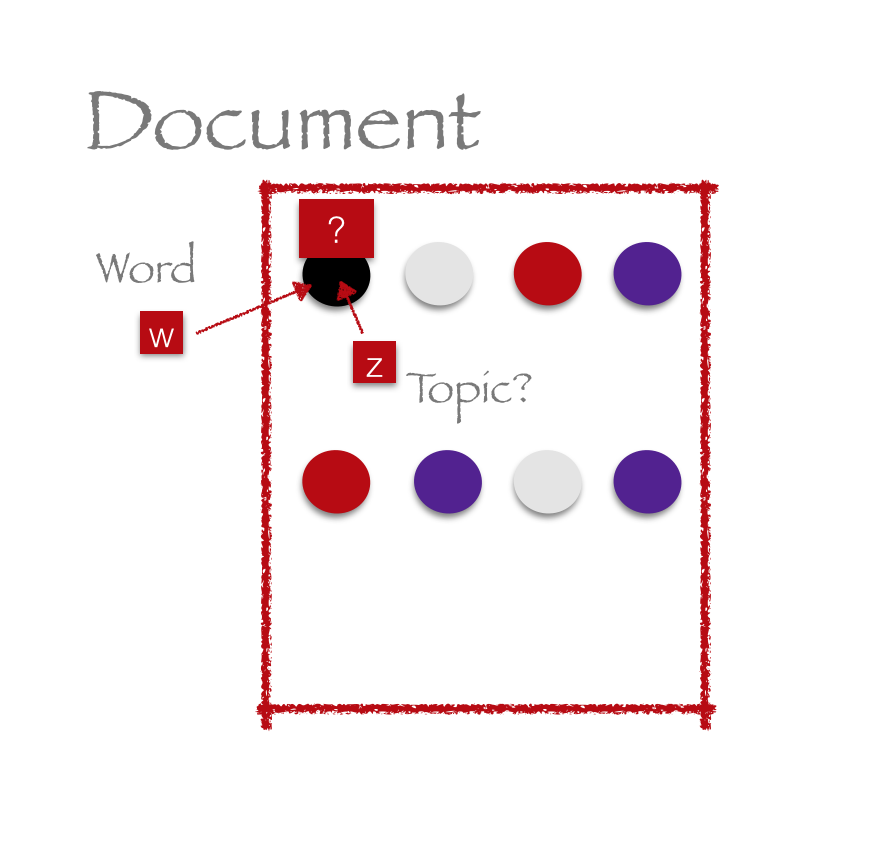
Resample topic for word, given all other words and their current topic assignments
Get results
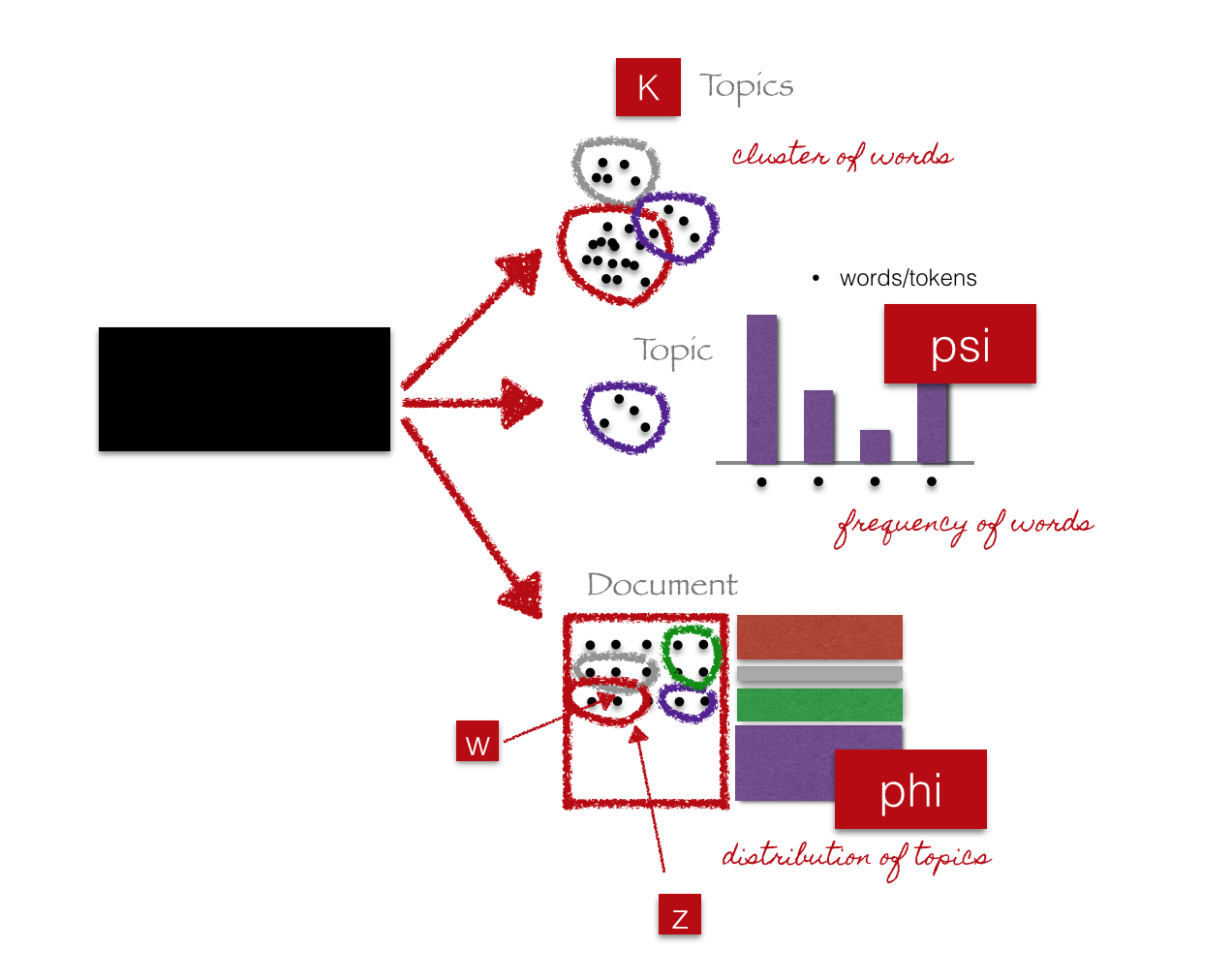
Evaluate model
Hard: Unsupervised learning. No labels.
Human-in-the-loop
Evaluate model
Human-in-the-loop
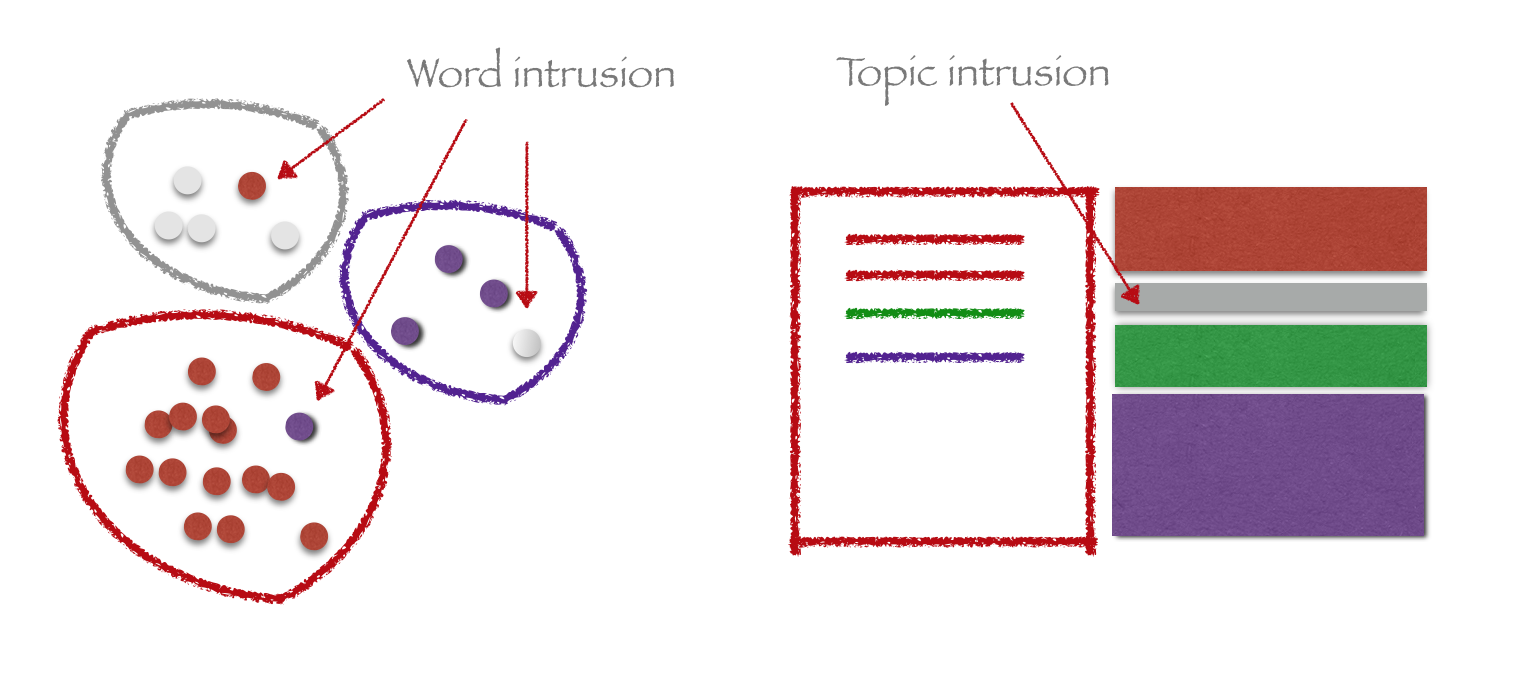
Evaluate model
Metrics
Evaluate model
Metrics
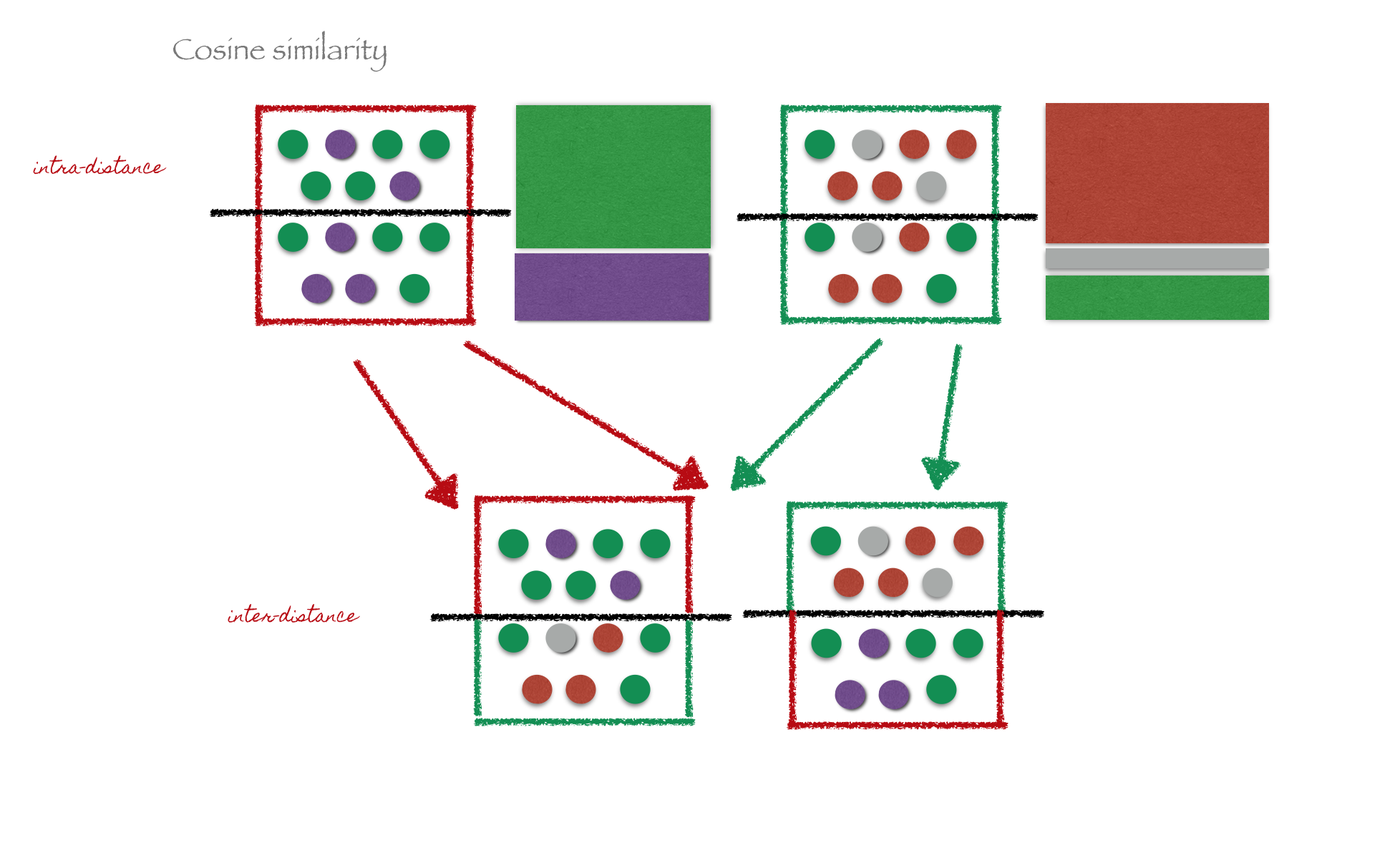
Evaluate model
More Metrics [1]:
Python libraries
Python libraries
Warning: LDA in scikit-learn refers to Linear Discriminant Analysis!
scikit-learn implements alternative algorithms, e.g. NMF (Non Negative Matrix Factorization) [1][2]
Gensim
import gensim
# load id->word mapping (the dictionary)
id2word = gensim.corpora.Dictionary.load_from_text('wiki_en_wordids.txt')
# load corpus iterator
mm = gensim.corpora.MmCorpus('wiki_en_tfidf.mm')
# extract 100 LDA topics, using 20 full passes, (batch mode) no online updates
lda = gensim.models.ldamodel.LdaModel(corpus=mm, id2word=id2word, num_topics=100, update_every=0, passes=20)
Graphlab
import graphlab as gl
docs = graphlab.SArray('http://s3.amazonaws.com/dato-datasets/nytimes')
m = gl.topic_model.create(docs,
num_topics=20, # number of topics
num_iterations=10, # algorithm parameters
alpha=.01, beta=.1) # hyperparameters
lda
import lda
X = lda.datasets.load_reuters()
model = lda.LDA(n_topics=20, n_iter=1500, random_state=1)
model.fit(X) # model.fit_transform(X) is also available
Pipeline
Pipeline
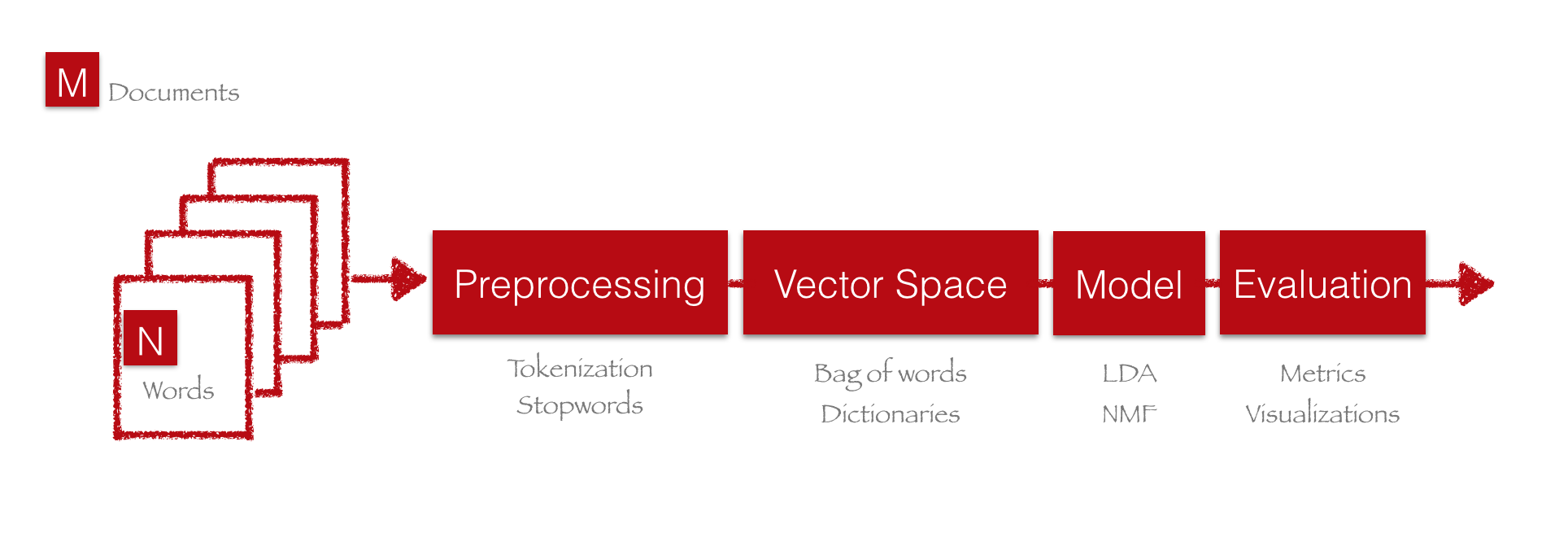
Preprocessing

Vector Space
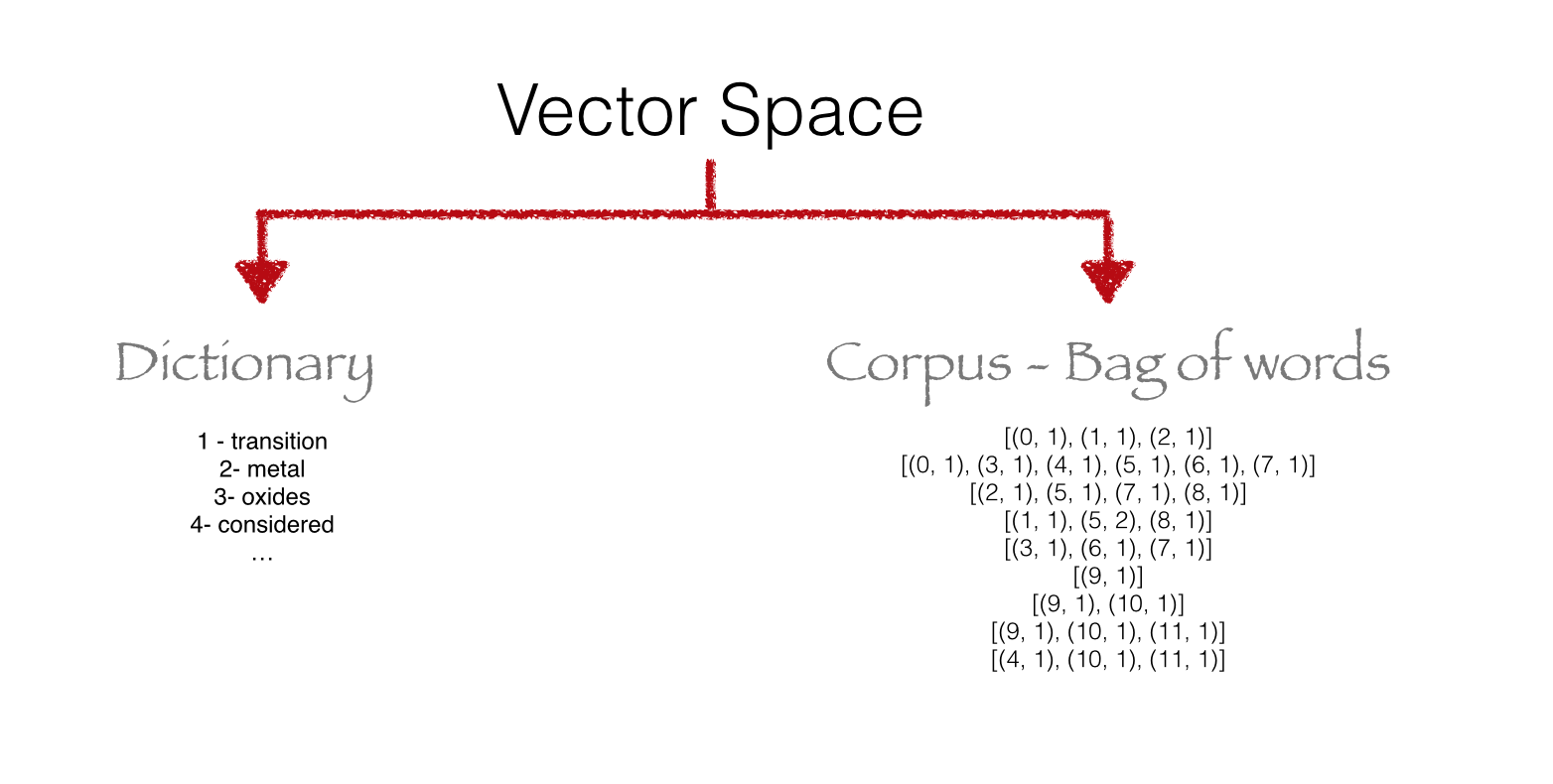
Model
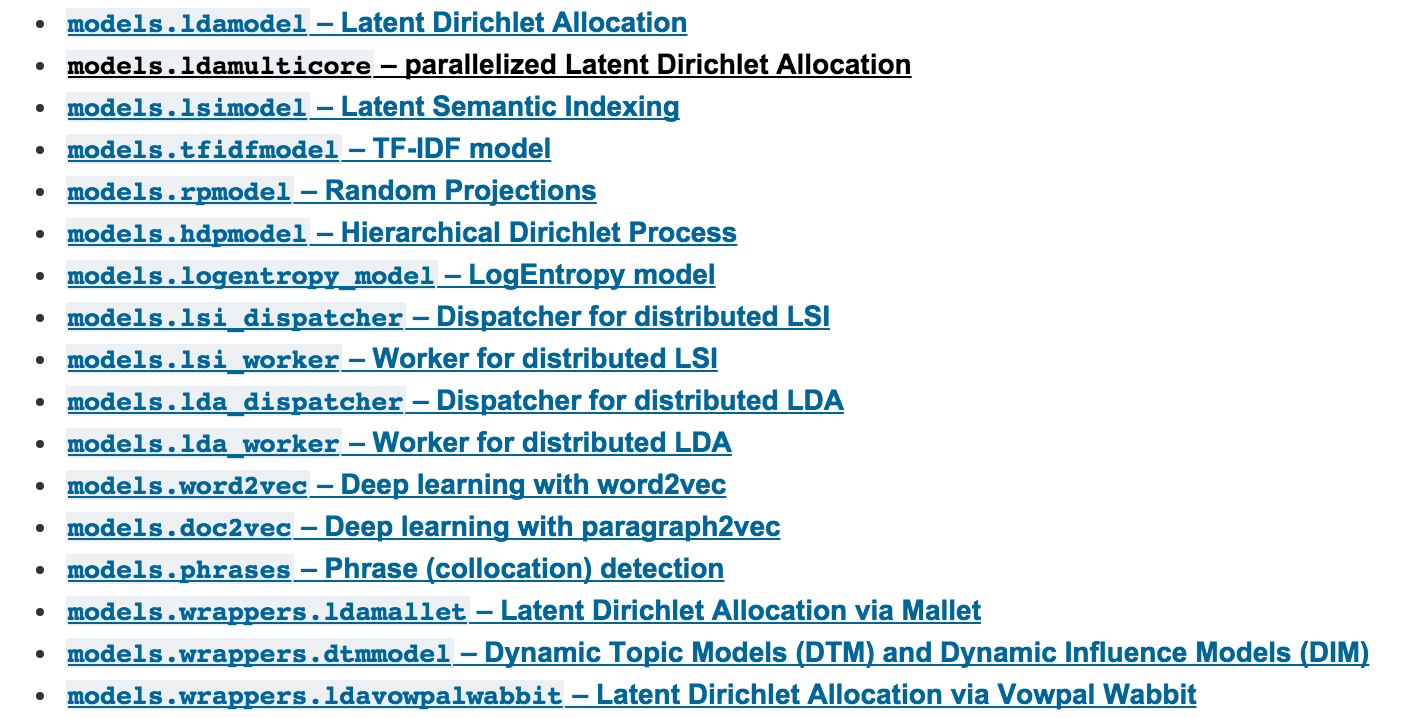
Evaluation - Visualization
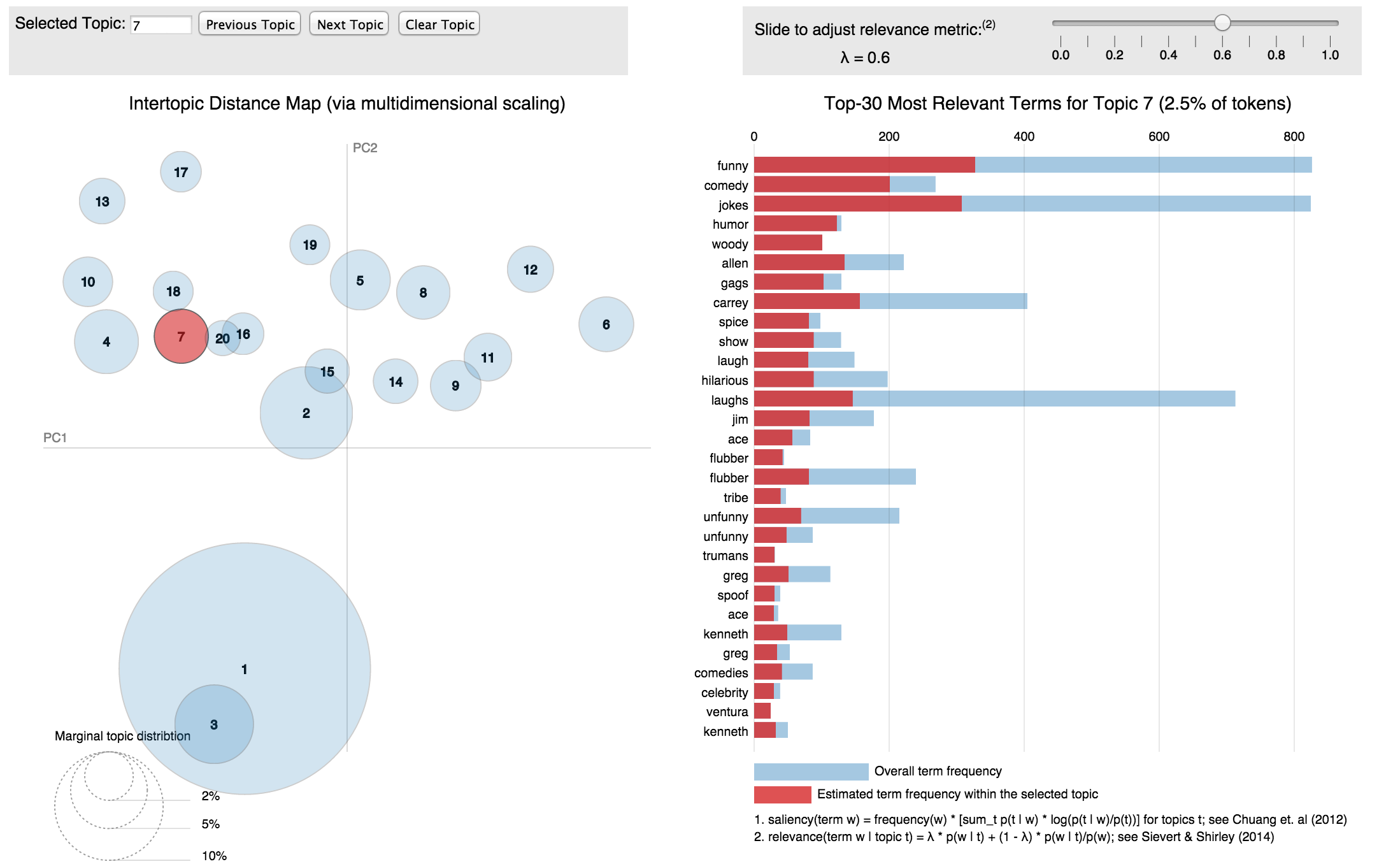
Topik
https://github.com/ContinuumIO/topik
... automating the pipeline
from topik.run import run_model
run_model('data.json', field='abstract', model='lda_online', r_ldavis=True, output_file=True)
Resources
Resources
IPython notebooks explaining Dirichlet Processes, HDPs, and Latent Dirichlet Allocation from Timothy Hopper
https://github.com/tdhopper/notes-on-dirichlet-processes
Questions?
Slides:
http://chdoig.github.com/pygotham-topic-modeling
Email: christine.doig@continuum.io
Twitter: ch_doig
